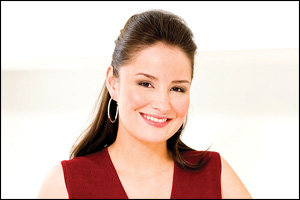At Goal
Finding Lasting Success
 What do successful patients look like five, ten and fifteen years after weight loss surgery? What do they think about?
What do successful patients look like five, ten and fifteen years after weight loss surgery? What do they think about? When we look at the patients who are at goal and have stayed there for five years or more, they have a few things in common:
(a) They weigh themselves once a week. For most patients, this is their way of managing what they do. Most of what they eat and how they exercise are routine, and weighing is another important part of that routine.
(b) They avoid highly processed foods and limit sweets to occasional treats. Chips, fries, breads, cakes and cookies are avoided. One of my patients, at five-foot-eight, eight years out, and 130 pounds, gained a few pounds and realized she had fallen into a pattern of eating too many chips. Weighing herself weekly gave her an early warning.
(c) They emphasize good foods. Many of these patients eat a lot of fish and enjoy vegetables. While these were not in their sights prior to surgery, they have incorporated them into their post-surgical lifestyle.
(d) Fast food is rare in their diets. One of my patients, 10 years out from a RNY bypass, said, “I lost my 120 pounds from McDonald’s, and I know if I ever need to find it again, I can eat on any corner.? Another patient who is five years out says, “If you are served from a sliding window and your dining chair is a car seat, you are going to be in trouble."?
(e) Exercise is a part of life for many successful patients—over 70 percent. They don’t do it for weight loss, but for tone and definition. Many love the feeling of being able to work out, and their exercise takes different forms that fit their unique lifestyles: the golfer who now walks the course instead of taking a cart, or the hiker who enjoys the outdoors.
(f) They keep track of iron, vitamins and overall nutrition. A number of my patients do not absorb iron well and need to occasionally see the hematologist to be infused with intravenous iron. This is more common in pre-menopausal women; for those who have gone through menopause or had uterine ablations or hysterectomies, it becomes less of an issue.
This is a healthy group of individuals who know what they went through when they were overweight and never want to go back. They have learned what works, and they do it, because they also know how easy it is to find the road back to obesity.
| Terry Simpson, MD, FACS is a weight loss surgeon in Phoenix and has authored several books. For more information check out Dr. Simpson's profile and website www.drsimpson.net. Click here for the PDF version of this article from its appearance in OH Magazine. |


